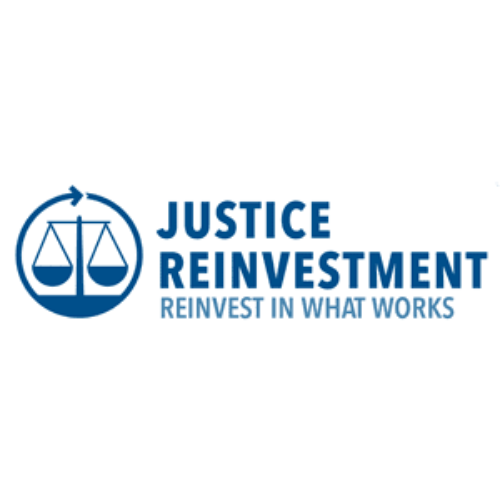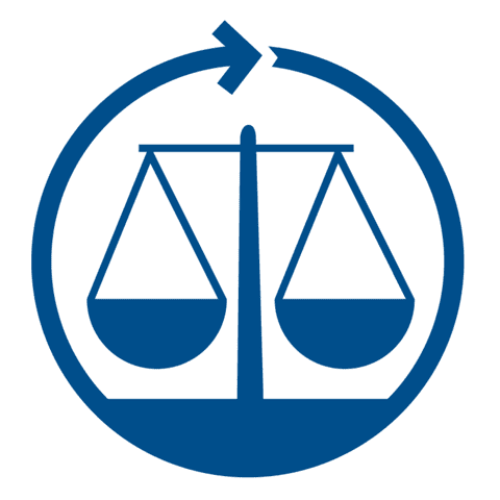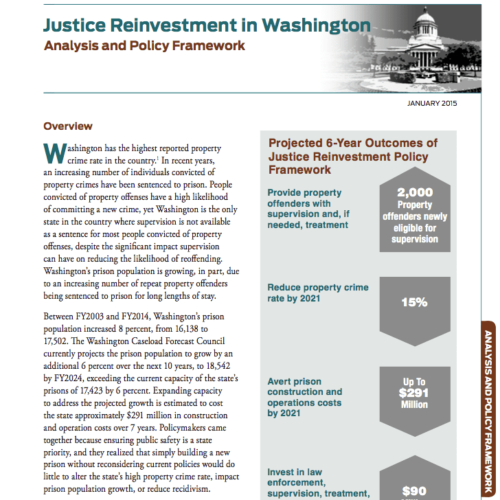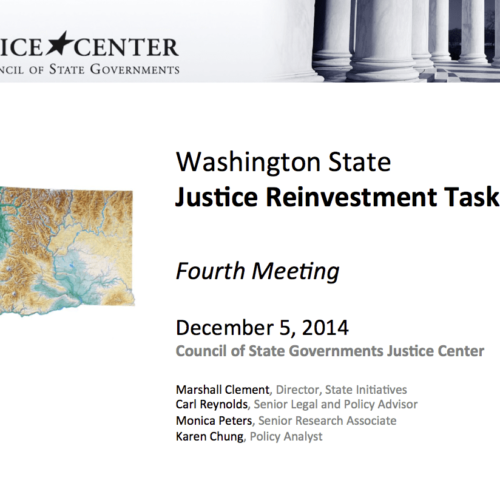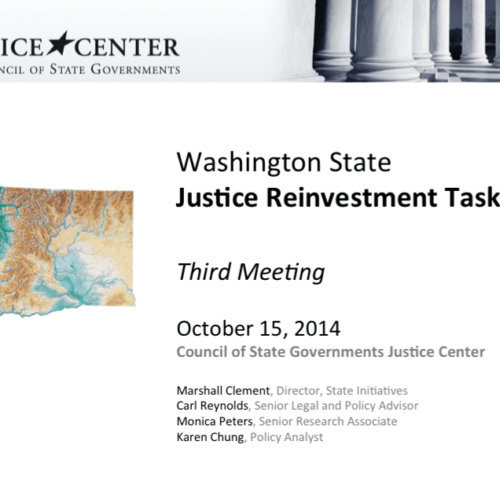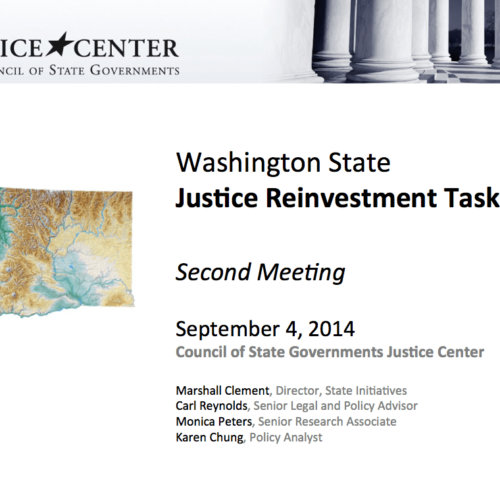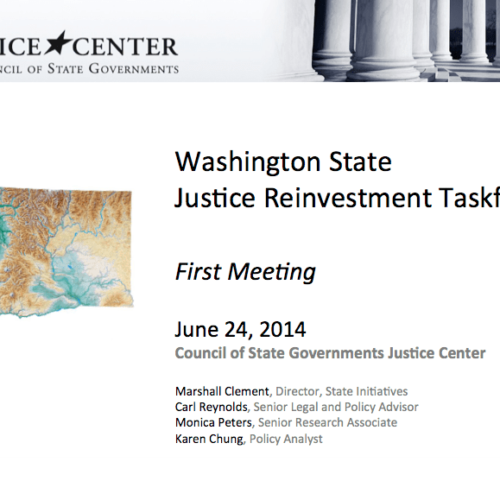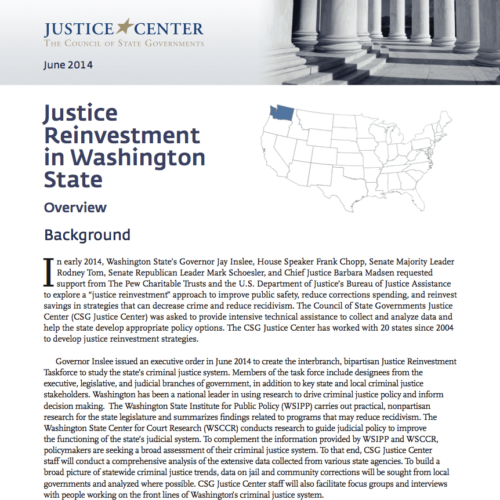Justice Reinvestment in Washington
The Problem
In 2014, Washington had the highest reported property crime rate in the nation. People convicted of property offenses had a high likelihood of committing a new crime, yet Washington was the only state in the country where supervision was not available as a sentence for most people convicted of property offenses, despite the significant impact supervision can have on reducing the likelihood of reoffending. In addition, the state’s prison population was projected to grow by 6 percent over the next 10 years, from 17,502 in 2014 to 18,542 by 2024, in part, due to an increasing number of people convicted of repeat property offenses being sentenced to prison for long lengths of stay.
How JRI Helped
In 2014, the CSG Justice Center was asked to analyze Washington’s criminal justice data, interview stakeholders from across the criminal justice system, and work with state leaders to develop data-driven policy options designed to reduce spending on corrections and increase public safety. Among other things, Washington’s Justice Reinvestment Policy Framework proposed
- Adopting a new sentencing grid for felony property offenses that mandates a period of supervision and, if needed, treatment for people convicted of less serious property offenses;
- Funding local law enforcement efforts to deter property crime;
- Creating a fund to provide financial assistance to victims of property crime; and
- Incentivizing counties to improve pretrial practices.
If implemented, the Justice Reinvestment Policy Framework was expected to help the state avoid up to $291 million in prison construction and operating costs that would otherwise be needed to accommodate the growth that was forecast to occur by 2024. To achieve these outcomes, the state would have needed to reinvest $90 million over the first six years in law enforcement grants, supervision and treatment, support for counties, and financial assistance for victims of property crime. Through improvements to the criminal justice system, this policy framework established a goal of reducing the property crime rate by 15 percent by 2021, deterring crime, and reducing recidivism.
The Justice Reinvestment Policy Framework was translated into legislation and introduced during the 2015 legislative session. However, no legislative action was taken during session.











